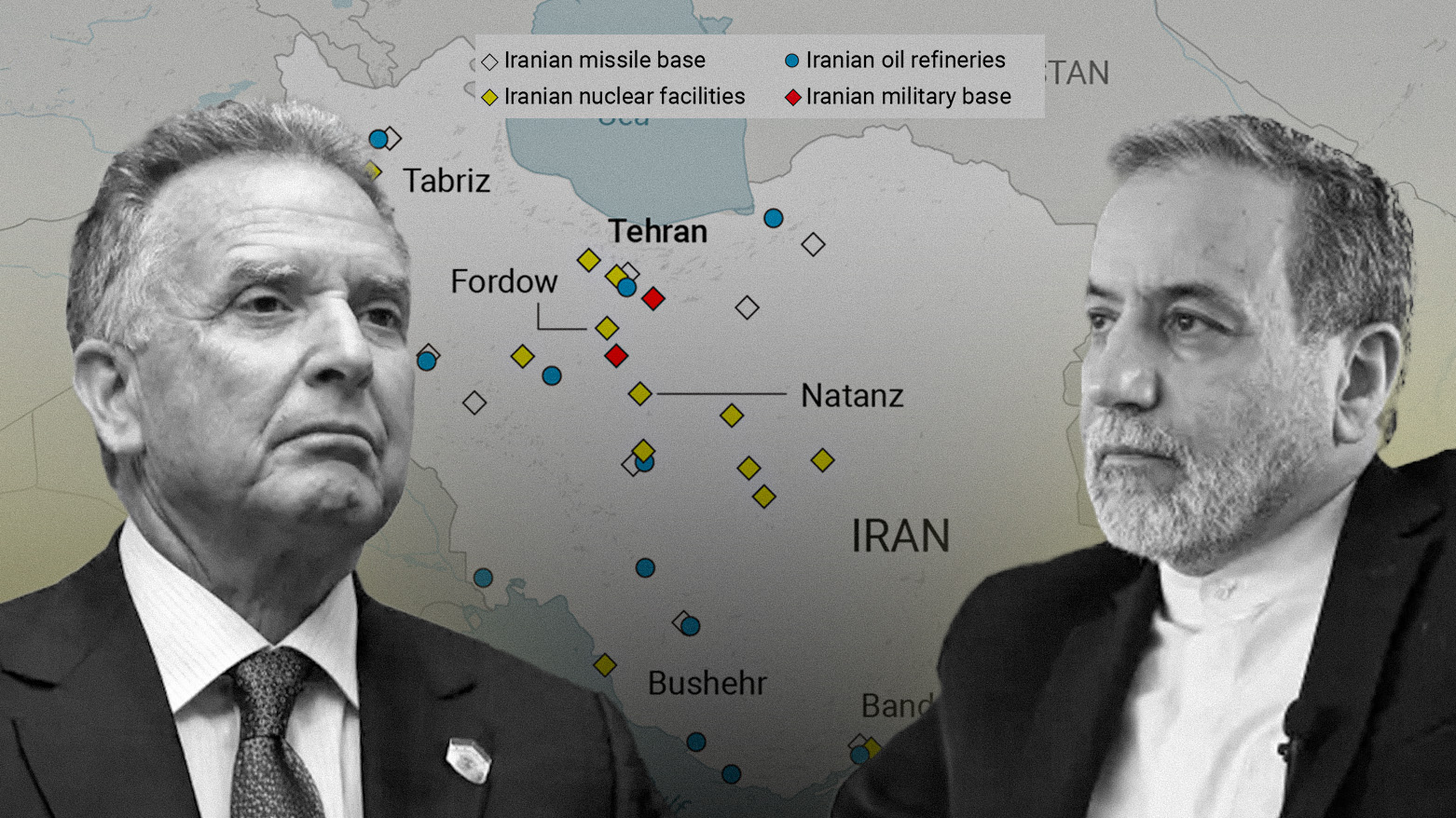Deal or Danger: Iran, U.S. Face Off Again in Oman
According to a report by The New York Times, Saturday’s session is expected to serve primarily as a preliminary “feeling-out” phase, though Iran’s Foreign Minister insisted, “Our participation is grounded in the necessary seriousness.”

By Kamaran Aziz
ERBIL (Kurdistan24) – As diplomatic anticipation builds in the region, Iran’s Foreign Minister Seyed Abbas Araghchi arrived in Muscat on Saturday to launch a new round of indirect nuclear talks with the United States, reaffirming Iran’s demand for a fair, honorable, and equal negotiation process focused solely on the nuclear issue and the lifting of sanctions.
According to the Iranian state news agency IRNA, Araghchi met with Oman’s Foreign Minister Sayyid Badr al-Busaidi upon arrival to discuss the logistical and political framework for the implementation of the indirect dialogue with the U.S. The Iranian delegation includes senior diplomatic figures such as Esmail Baghaei, Foreign Ministry spokesperson; Majid Takht-Ravanchi, Deputy Foreign Minister for Political Affairs; Kazem Gharibabadi, Deputy for International and Legal Affairs; and a team of seasoned experts in nuclear policy and sanctions relief.
Speaking after the meeting, Araghchi described the delegation accompanying him as composed of “highly specialized and knowledgeable colleagues with previous negotiation experience on the same issue,” stressing the seriousness with which Tehran was entering the talks.
“Our participation is grounded in the necessary seriousness,” Araghchi stated. “If the other side also enters the process with the same intention, there is a chance for an initial understanding that could lead to a negotiation track.”
The talks, which are being conducted under the mediation of Oman, are viewed as a critical test of the willingness of both Tehran and Washington to break the years-long impasse following the U.S. withdrawal from the Joint Comprehensive Plan of Action (JCPOA) in 2018.
According to a report by The New York Times, Saturday’s session is expected to serve primarily as a preliminary “feeling-out” phase, with modest goals such as setting a negotiation framework and timeline. The two sides enter the talks with deep mutual distrust. President Donald Trump withdrew from the JCPOA in 2018 and imposed harsh sanctions on Tehran, while Iran expanded its enrichment activities in response.
While President Trump now seeks a new deal to curb Iran’s nuclear ambitions and avoid further regional escalation, Iranian officials remain skeptical. Nevertheless, Araghchi told The Washington Post this week that Tehran is “ready to engage in earnest and with a view to seal a deal.”
The core sticking point, according to The New York Times, lies in the U.S. demand for dismantlement of the Iranian nuclear program, while Tehran is only willing to consider reductions and monitoring—rejecting any total rollback.
“The negotiations will be indirect, and from our perspective, they will only concern the nuclear issue,” Araghchi reiterated in Muscat. “They must be conducted with the necessary determination to reach an agreement based on equal footing that secures the national interests of the Iranian people.”
Meanwhile, President Trump has warned that failure to reach a deal could result in severe consequences. As reported by The Times, six U.S. B-2 bombers equipped with bunker-busting munitions have been stationed on Diego Garcia, signaling Washington’s readiness for military action should diplomacy fail.
According to the latest assessment by the International Atomic Energy Agency, Iran could enrich enough weapons-grade uranium for a nuclear bomb in under a week. Israeli Prime Minister Benjamin Netanyahu has urged Washington to consider the “military option” unless Iran’s enrichment sites are dismantled under American supervision.
Oman, long recognized as a discreet facilitator of back-channel diplomacy in the Gulf, is again playing host to what could become a defining chapter in U.S.-Iran relations. According to IRNA, Foreign Minister al-Busaidi is also scheduled to meet with Steve Witkoff, the U.S. Special Envoy for Middle Eastern Affairs, for consultations under the same agenda.
Though the atmosphere remains tense, the presence of high-level delegations on both sides indicates a potential—if narrow—window for re-engagement. As The Times observed, Iran’s economy is straining under more than 30 percent inflation, and Washington is under growing pressure to resolve multiple global crises diplomatically.
As the talks unfold in Muscat, the international community watches closely for signs of compromise, political will, and a genuine path toward de-escalation in one of the Middle East’s most protracted and high-stakes geopolitical standoffs.